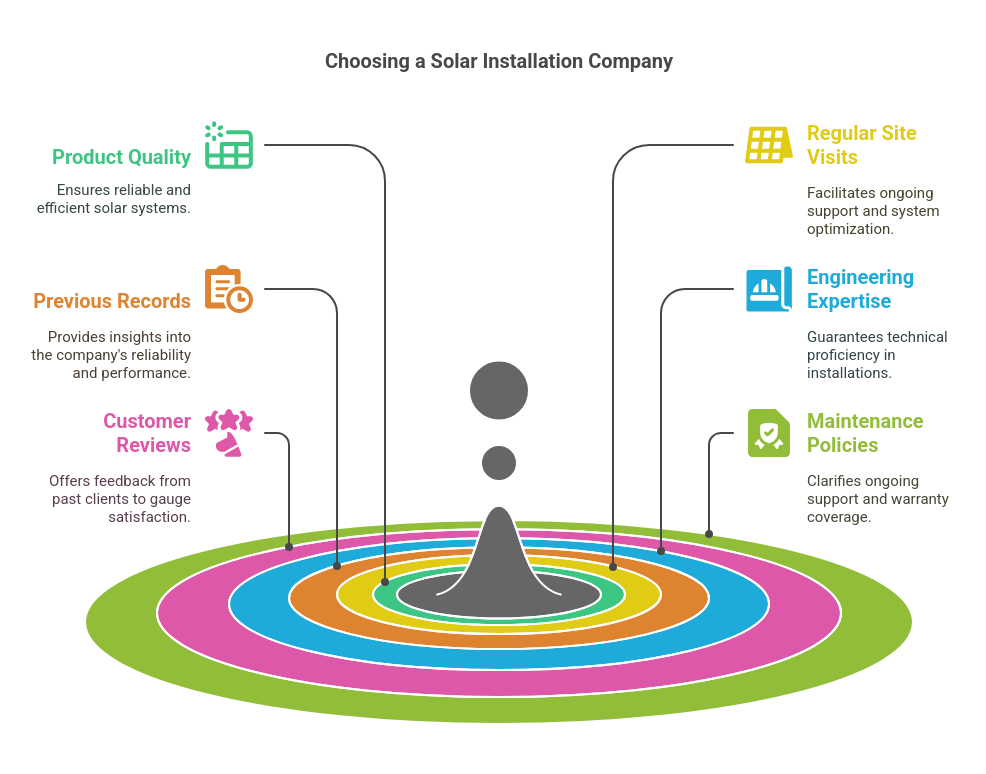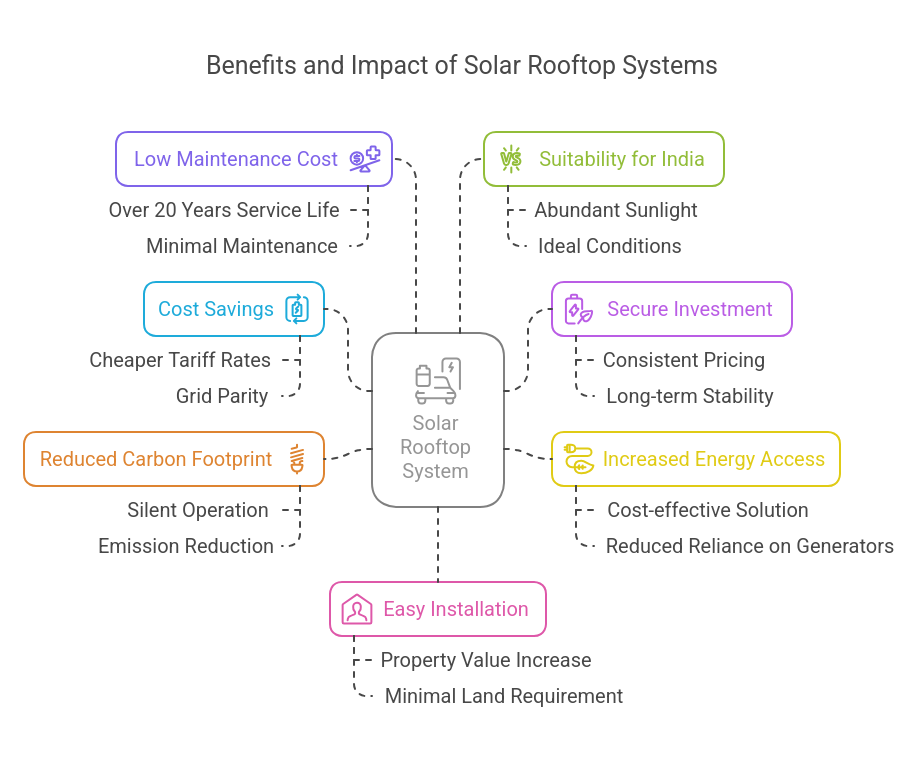In this era of clean energy, it is the right time to go for solar energy as a conventional source rather than merely an alternative. This shift brings a sense of responsibility towards society in contributing towards a cleaner environment. Also, it has been observed that many advancements have been made in the solar industry. With time, the number of solar installation companies in India has increased from a few to many, offering reliable and innovative solutions for both residential and commercial needs.
Several companies are not just getting into this field; they are developing innovative ideas that include minimal-cost equipment, lifetime maintenance facilities, etc. These features create difficulty for the customers to choose the best installer in India.
The guidance and expertise of a reliable solar installation company in India can make all the difference in helping you make the right decisions while selecting the installer best suited for your requirements. They can provide the correct direction and assistance throughout the process. By choosing a reputable solar company, you can have peace of mind knowing that you are in capable hands. They will help you assess your energy requirements, determine the best placement and direction for your solar panels, and guide you through any necessary paperwork or permits.
Before diving into solar installation, collaborate with a trustworthy solar company in India. Therefore, some important factors to consider while selecting an installer for your needs are summarised below.
How to Choose the Right Solar Installation Company?

1. Check for quality of products and services
Quality should always be the priority over the quantity of the services the company is offering. It is recommended to choose tier-1 PV modules; every component should be from a well-known brand. It is essential to review the warranties and assurances the installation company provides. Few installers offer installation guarantees in addition to product warranties, sometimes with restrictions like the Defect Liability Period, etc. Numerous Solar EPC businesses offer all-inclusive services. These include feasibility assessments, reports, design, and engineering. Some additional services are procurement and supply, installation and commissioning, permits and approvals, service and support, and financing alternatives. Do not forget that a solar power installation has a 25-year lifespan approximately. Therefore, utilising only high-grade materials and performing quality installations is crucial.
2. Regular visits
Always ask any solar firm you contact whether they will listen to your demands and objectives. The provider must next send an experienced installer to your office4 or industrial area for the installation process to assess the general view of the area where the solar panel will be installed.
Is he giving you enough time to comprehend the details, or is he merely showing up casually and showing little interest in you or the requirements for solar panels on your roofs? Whether it is commercial or residential. Ensure all the answers to your questions are answered correctly.
3. Check previous record
Make sure that the solar installation company in India you choose discloses their previous solar projects and then try to identify the results. Besides the previous ones, ask the installer about any recent projects and ask for the details if they have done any extraordinary projects. This will make you more confident about the company, and there will be no second thoughts while sharing all the details with an eminent company.
4. Inspect the Engineering Expertise
When it comes to selecting a solar installer, it’s crucial to consider the team’s background and engineering expertise. A reputable solar installer typically has certifications and memberships demonstrating their commitment to quality and reliability.
One of the certifications to look for is MCS accreditation, which ensures that the installer has met the Renewable Energy Assurance Limited (REAL) standards or the Solar Trade Association (STA).
5. Customer reviews
Customer feedback is a fantastic way to gain insights about a company’s work. You can take a sneak peek at the company’s reviews on platforms like Google and Facebook to see what others have to say. Don’t hesitate to ask questions, as you’re the one investing. Select the installer after self-satisfaction only.
6. Maintenance and warranty policies of the company
When it comes to solar panels, a wide range of options in the market, each with warranties ranging from 25 to 30 years, are available.
These warranties play a crucial role in protecting your investment and ensuring predictability. In addition, having a reliable maintenance plan is essential to ensure your solar system’s longevity and optimal performance.
Companies like Hartek Group are known for their systematic methods, lifetime service, zero compromise to service and excellent maintenance facilities, making them a great choice for investing in solar energy.
Conclusion
In conclusion, paying attention to a company’s values, ethics, goals, and mission statement is important as it can give you valuable insights about the company and its treatment of its clients.
Beware of installers who try to pressure you into purchasing their products unnecessarily. Reputable and quality-oriented brands will never engage in such tactics. So, it’s essential to stay smart and make informed choices when selecting a solar installation company in India.
While discounts may seem attractive initially, it’s crucial to consider the long-term costs and implications. Hartek group’s team of experts is here to assist you to ensure you receive honest and unbiased suggestions. Feel free to connect with us today; we’ll happily provide you the assistance you need.
FAQ’s:-
1. What should I look for in a solar installation company in India?
Look for quality products, engineering expertise, customer reviews, and reliable warranties when choosing a solar installation company.
2. How do I verify the credibility of a solar company?
Check their previous projects, certifications (like MCS accreditation), and customer feedback on platforms like Google and Facebook.
3. Why are regular site visits important for solar installation?
Regular visits ensure accurate area assessment, proper installation planning, and tailored solutions based on your specific energy needs.
4. What is the typical warranty period for solar panels in India?
Most solar panels come with a warranty of 25 to 30 years, covering performance and material defects for long-term reliability.
5. Why choose Hartek Group for solar installation in India?
Hartek Group offers lifetime service, top-quality products, expert engineering, and excellent maintenance facilities, ensuring reliable solar solutions.


